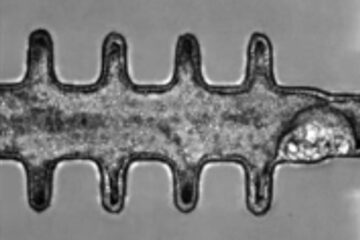In-vitro-Diagnostic: Systems for Patient-near Testing

Hence, complicated patient-near sampling and testing can be performed. Via the use of information and communication technologies the system is mobile and can be used in a variety of different scenarios.
The Fraunhofer Institute for Biomedical Engineering IBMT, Branch Potsdam-Golm, together with different collaborators will be presenting its research development in point of care testing on this years' MEDICA (16.-19. November, Düsseldorf, Hall 10 Stand F05).
First applications of the system are in intensive care and emergency medicine as well as screenings and therapy control. In addition, as a technology platform also other analyses can be transferred onto the system. At the end of the project all partners are available at the booth on november,17, 2011 between 11 a.m. and 1 p.m.
Contact:
Dr. rer. nat. Soeren Schumacher
Fraunhofer Institut for Biomedical Engineering IBMT
Branch Potsdam-Golm
Am Mühlenberg 13
14476 Potsdam-Golm
Germany
soeren.schumacher@ibmt.fraunhofer.de
Telephone: +49(0)331/58187-314
Media Contact
More Information:
http://www.ibmt.fraunhofer.de/All latest news from the category: Life Sciences and Chemistry
Articles and reports from the Life Sciences and chemistry area deal with applied and basic research into modern biology, chemistry and human medicine.
Valuable information can be found on a range of life sciences fields including bacteriology, biochemistry, bionics, bioinformatics, biophysics, biotechnology, genetics, geobotany, human biology, marine biology, microbiology, molecular biology, cellular biology, zoology, bioinorganic chemistry, microchemistry and environmental chemistry.
Newest articles

Solving the riddle of the sphingolipids in coronary artery disease
Weill Cornell Medicine investigators have uncovered a way to unleash in blood vessels the protective effects of a type of fat-related molecule known as a sphingolipid, suggesting a promising new…

Rocks with the oldest evidence yet of Earth’s magnetic field
The 3.7 billion-year-old rocks may extend the magnetic field’s age by 200 million years. Geologists at MIT and Oxford University have uncovered ancient rocks in Greenland that bear the oldest…

Mini-colons revolutionize colorectal cancer research
As our battle against cancer rages on, the quest for more sophisticated and realistic models to study tumor development has never been more critical. Until now, research has relied on…





















